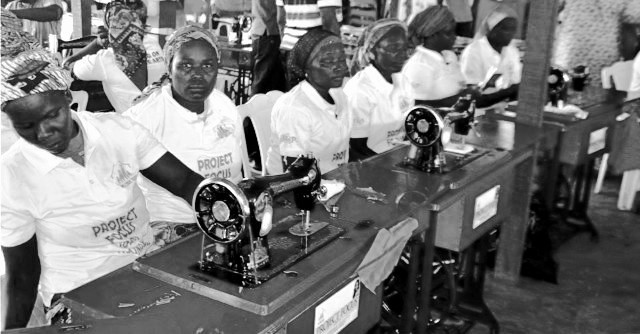Opinion
The Imperative For Women Empowerment

Women empowerment is a burning issue
all over the world. It is about the creation of an enabling environment for women to make decisions for their personal benefits and the society.
It is also about increasing and improving the social, economic, political and legal strength of a woman with a view to according women equal rights as well as making them confident enough to make decisions.
There is a great deal debating the role of women in the society. But in truth, the ultimate aim of women empowerment is that there will be an overall development of the society.
Women try relentlessly to mark their presence outside the kitchen and laundry room, yet in the same relentless manner, they are being reminded of the need to live a more fulfilling life.
Women are not just home makers; they have evolved throughout the century playing many roles in various societies. A woman has been a wife, mother, farmer, teacher, and a volunteer worker. Most women have combined two or more of these roles together and are doing excellently well.
In the history of mankind, every society attaches certain specific roles to women. In the 1950’s for instance, most women stayed at home and took care of their families. Only about 18.4 million women worldwide were working outside the home. Things have, however, changed. Nowadays, women struggle and compete with men in every sector of life.
Some organisations have even taken it upon themselves to liberate women on their rights in the society. These bodies have made a platform for women to express themselves freely, and to know the importance of empowering the female folks.
The United Nations Development Programme (UNDP), for instance, focuses on gender equality with a goal to coordinating global and national efforts for gender equality and women empowerment.
Across Latin America and the Caribbean, UNDP sponsors a certification programme that encourages public and private companies to boost gender equality in work places.
In the aspect of unemployment, women population constitutes around 50% of the world population. But it is sad that a large number of women are unemployed due to unequal opportunity for women in workplaces. There is no doubt that we have talented women who have proved themselves in every sector of human endeavour such as law, engineering, medicine, science etc. Why can’t women then enjoy the same privilege like their men counterparts?
It is necessary for us to know that women empowerment provides a roadmap for economic emancipation of not just women but the entire society. Women empowerment helps women to stand on their foot, become independent and assist their families. This in turn improves the country’s economy.
Women empowerment also reduces the rate of poverty in a society. Most times, the money earned by male members of the family is insufficient to meet the demand of the family. Therefore, the added earnings of women help the family come out of poverty.
However, there are barriers that prevent women empowerment in Nigeria and most of them are the reasons why the female folks can’t participate freely in the society. One of them is the erroneous belief that women’s role starts and ends in the kitchen and that women are supposed to be sub-servient to men.
It is, therefore, necessary that we change this mindset. There must be a restructuring in the minds of individuals, especially in the aspect of social norms, culture and belief towards women.
Technology has made things easier such that a woman can work in office, run business and yet fulfils her obligations at home as a wife. This is why the education of a girl-child should be encouraged so that in future, they will be able to stand on their own.
Therefore, those who are saddled with the responsibility of promoting the rights of women should stand firm and ensure that women are given the necessary assistance needed to be self-sufficient and less dependent on male folks.
Obusele is a student of Abia State University, Uturu
Mirian Obusele
Opinion
Righteous Leadership Still Thrives

Opinion
Incentives: Key to Police Morale

Opinion
Time and Season Can Tell

-
Maritime3 days ago
Nigeria To Pilot Regional Fishing Vessels Register In Gulf Of Guinea —Oyetola
-

 Sports3 days ago
Sports3 days agoGombe-Gara Rejects Chelle $130,000 monthly salary
-
Maritime3 days ago
Customs Declares War Against Narcotics Baron At Idiroko Border
-
Maritime3 days ago
NIMASA,NAF Boost Unmanned Aerial Surveillance For Maritime Security
-

 Sports3 days ago
Sports3 days agoTEAM RIVERS SET TO WIN 4×400 ” MORROW” …Wins Triple jump Silver
-

 Sports3 days ago
Sports3 days agoNPFL Drops To 91st In Global League Rankings
-
Maritime3 days ago
NIWA Collaborates ICPC TO Strengthen Integrity, Revenue
-

 Sports3 days ago
Sports3 days agoNPFL Impose Fines On Kwara United Over Fans Misconduct

